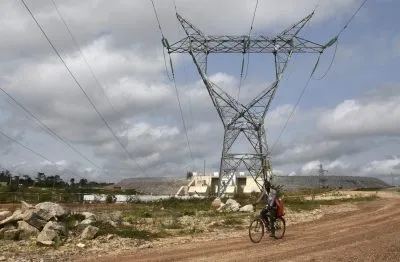Late last year, Kenya’s Environment and Mineral Resources Minister Chirau Ali Mwakwere raised a storm in the extractive industry sector when he gazetted new mining rules calling on all investors to cede 35% shares to local investors and firms.
The legal notice reads in part “It shall be a condition of every mining licence that the mineral right in respect of which the licence is issued shall have a component of local equity participation amounting to at least 35%”.
Mining companies have been given three to five years to restructure their ownership to accommodate local investors.
According to the Minister, this was done to ensure locals benefit from the proceeds of extractive industries by curbing the repatriation of mineral wealth. As soon as the notice became public, the shares of Australian mining firm Base Resources, which is currently involved in mining of titanium in Kenya’s south coast, slumped by 40% at the Australian Securities Exchange (ASE).
Base Resources has already invested $275m in its mining operations, making it Kenya’s first large-scale mining venture. According to Base Resources’ projections, the mine at Kwale is expected to begin production after June this year. The mining firm expects to produces 330,000 tonnes, or 10% of the world’s supply of ilmenite, 40,000 tonnes of zircon and 80,000 tonnes, or14% of the world’s supply of rutile.
Other extractive industry players affected include Canada’s Pacific Wildcat, which is prospecting for Niobium, UK-listed companies GoldPlat, which was granted Kenya’s first gold mining licence in 2011, African Barrick Gold, and Fenxi Mining, a Chinese firm seeking to mine coal in Kenya’s Kitui County in the eastern region.
Tim Carsten, the managing director of the Base Titanium Company, said, “as soon as the news of the rule went out, our share slumped 40% at the Australian Securities Exchange and has not recovered since. The minister could be well meaning to want a little more to go to locals but this not the way to go about it.”
Mwakwere has defended his move: “Our resources can not be sold for a song while the multinationals enrich themselves leaving the real owners with nothing. We must get our fair share and those unwilling to do so can leave our minerals in the ground until we get those who are ready to play ball.”
A key component of the new mining statute and policy is a clause that introduces benefits sharing between the government, county authority and the communities living within the mining areas.
The clause provides for the equitable growth of the mining sector and the sharing of royalties in a 75:20:5 formula for government, county administration and community respectively.
Other than the local equity participation, the Kenyan government had earlier on demanded a 20% tax on the sale of assets by all oil and mining prospecting companies.
Two weeks after Kenya issued the controversial regulations, Uganda suspended the issuance of new mining licences, citing various malpractices ranging from unscrupulous speculators to non-performance.
In Tanzania, the extractive industry players found themselves grappling with a new mining regulation which took effect in late 2012. Under the new regulations all foreign-owned mining companies are required to cede 50% of their stakes to the Tanzanian public or lose their mining permits.
This move is threatening to cripple the $500m tanzanite gemstone industry. TanzaniteOne, which is a multinational company listed on the London Stock Exchange (LSE) has so far rejected the government’s demand that it surrenders 50% of its shares to the State Mining Corporation (Stamico). TanzaniteOne has instead opted to offer 20% of its shares to the public through an IPO at the Dar es Salaam Stock Exchange (DSE).
In a separate development, the Tanzanian government also annulled its annual flat rate levy of $200,000 on all extractive firms, and imposed a royalty fee of 0.3% on all mining companies annual turn-over returns.
Rwanda, too, which is rich with coltan, cassiterite and wolframite, is currently reviewing its mining laws and licences.
While the main players in the extractive industries have expressed their reservations, none has closed shop and they have instead opted for behind the scenes lobbying for ‘friendlier regulations’.
Want to continue reading? Subscribe today.
You've read all your free articles for this month! Subscribe now to enjoy full access to our content.
Digital Monthly
£8.00 / month
Receive full unlimited access to our articles, opinions, podcasts and more.
Digital Yearly
£70.00 / year
Our best value offer - save £26 and gain access to all of our digital content for an entire year!
 Sign in with Google
Sign in with Google 



